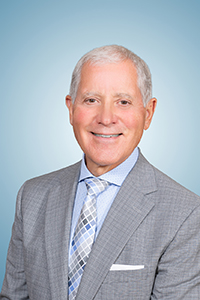When did you decide you wanted a career in occupational health and safety?
Soon after graduating from university with aspirations for a teaching career, I realized that employment opportunities were few in the education field at that time. Due to the extensive construction work I had done during the summers and throughout numerous weekends, I was approached by colleague to work in the insurance industry as a claims field adjuster in the housing area. As I became proficient in investigative matters, I was subsequently promoted to bodily injury and illness claims within the private sector. Although this work allowed for extensive investigation, meetings with legal counsel and medical practitioners which lead to eventual claims settlement, I found that I was not fulfilled. I soon realized that I aspired to prevent so many of the tragedies that I had encountered in my claim’s role. Between traffic fatalities, residence fires, animal attacks, and other insurable situations, I continued to believe that education was critical in preventing these incidents. This unyielding desire led me to the field of occupational health and safety.
Tell me about your current position. What are your main areas of responsibility?
In my current role as President of Minerva Canada Safety Management Education Inc., I have the pleasure of advocating for health and safety principles in an effort to integrate them into the curriculum of post-secondary institutions. While the primary focus of Minerva Canada has been both engineering and faculties, it is encouraging to state that other academic areas are now interested in these OHS principles. Minerva Canada, a volunteer run, not for profit organization, offers a number of resources in support of health and safety. These include online learning modules, case studies, student awards, webinars, learning forums and other teaching resources. Minerva Canada’s continuing success is attributed to its family of volunteer Board of Directors and Working Group members who represent private industry, professional associations, government organizations and post-secondary academic partners. These resources are also available to companies within the private sector. More information is available here: https://safetymanagementeducation.com/
What do you love about your career in OHS?
Occupational health and safety is an exceptional career due to the balance of human and technical skills. I strongly believe that a safety professional and/or practitioner is well placed in any organization to be the agent of change. Given that health and safety continues to evolve with technological advances (i.e. artificial intelligence, drones, robotics, etc.), and human or interpersonal integration (inclusion, diversity, equity, mental health, etc.), it facilitates the ongoing need for lifelong learning. The position of health and safety often becomes the bridge between the procedural complexities of the boardroom and the operational realities of the field or plant floor. It is a role that balances the many skills that continuously navigate and balance the need to protect people and our environment while maintaining the critical imperative of economic sustainability.
What tips do you have for new grads or those in entry level OHS positions who want to move up the ladder?
In addressing the opportunities that are inherent in entry level positions, I am reminded that every encounter, every opportunity and every challenge provides the chance to learn. Certainly, there will be occasions where the example or situation was not handled optimally. Yet, we often learn from more from failure than success. My point here is that it is important to embrace the opportunities that are made available because experiential learning is where the academic learning and practical skills become most effective. Similarly, the opportunities provided through volunteerism cannot be overlooked. In many entry level positions, chances to expand learning, skills or leadership roles may not be immediately available. Hence, the value of volunteering becomes the learning platform. Regardless of organization, profit or not-for-profit, the organizational skills that may be acquired through a volunteer role should be embraced. They serve as a solid foundation when other OHS positions present themselves. Lastly, an important reminder when interviewing for advancing one’s career… Remember that the volunteer position and experience may be the differentiator in being awarded a new role.
What do you do when you are not working?
Although health and safety remain the dominant mindset for all of us in this field, we often need to remind ourselves that while we are vigilant in looking out for others, we need to take care of ourselves as well. Once again, I try to balance the need for both physical and mental activity. Hence, I remain a disciplined reader of diverse topics to ensure I remain open to different perspectives. Secondly, music has been and remains an enjoyable pastime that helps in easing the stress of everyday demands. Between a diverse collection of music in various formats and playing/learning guitar, this remains a constant for me. Lastly, in retirement, I have embraced running after a break of a couple of decades and I look forward to running the Detroit Free Press International Half-Marathon once again this October.

